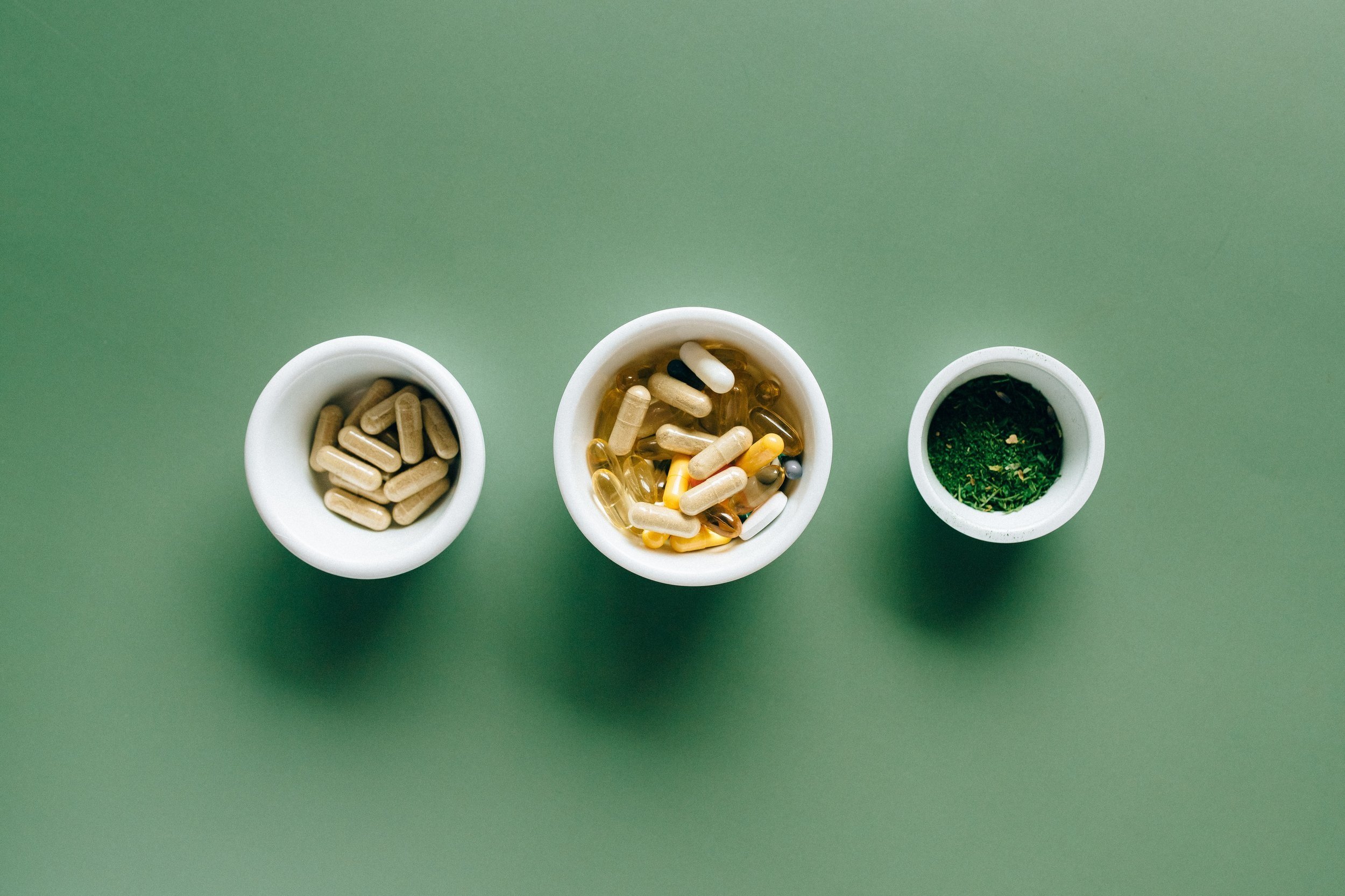Polycystic Ovary Syndrome (PCOS): An Overview
Polycystic Ovary Syndrome (PCOS) is a widespread medical condition affecting a significant number of women* globally, profoundly impacting their overall health and well-being.
In this overview blog post, we delve into the intricacies of PCOS, spanning its origins, clinical manifestations, dietary implications, therapeutic approaches, and alternative modalities.
*Women here and throughout referring generically to individuals with a womb.
DISCLAIMER: THIS BLOG POST DOES NOT PROVIDE MEDICAL ADVICE
The information in this blog post, including but not limited to the text, graphics and images, are for educational and informational purposes only. None of the material within this blog post is intended to substitute medical advice, diagnosis or treatment. Always seek the advice of a qualified medical professional such as your doctor when you have concerns or questions.
What is PCOS?
Polycystic Ovary Syndrome is an endocrine (hormonal) disorder that predominantly afflicts women in their pre-menopausal years, meaning the reproductive years. Its prevalence varies between 3% to 10%, contingent upon the specific diagnostic criteria employed and the demographic being analysed. PCOS typically manifests through signs such as androgen excess (elevated testosterone levels and male-pattern body hair growth) and ovarian dysfunction (irregular menstruation and cyst-like ovarian growths), which serve as hallmark features. These cysts are small fluid-filled sacs that develop on the outer edge of the ovaries and contain immature follicles (eggs), that do not release regularly. What makes PCOS particularly challenging is its diverse range of symptoms, making diagnosis and management a complex journey.
What causes PCOS?
The exact cause of PCOS remains unknown, but early diagnosis, treatment, and weight management can reduce long-term risks such as type 2 diabetes and heart disease.
The causes of PCOS are multifaceted:
Insulin resistance: Cells resist insulin's action, leading to elevated blood sugar levels. High insulin levels can trigger increased androgen production, disrupting ovulation.
Low-grade inflammation: Individuals with PCOS often exhibit long-term, low-grade inflammation, causing the ovaries to produce excess androgens, which can contribute to heart and blood vessel problems.
Heredity: There's a genetic component to PCOS, and a family history of the condition can increase the likelihood of developing it.
Excess androgen: PCOS ovaries may produce excessive androgens, hindering regular egg development and release, leading to hirsutism and acne.
What are the symptoms of PCOS?
PCOS engenders a broad spectrum of symptoms including irregular menstrual cycles, hirsutism (male-pattern body hair growth), alopecia, obesity, and acne. Heightened androgen levels, including testosterone, alongside the presence of ovarian cyst-like growths, are prominent diagnostic indicators. Moreover, PCOS frequently coincides with insulin resistance, elevating the risk of type 2 diabetes, alongside other factors like obesity, dyslipidemia, fertility challenges, and an increased susceptibility to adverse pregnancy outcomes. There is some also evidence that suggests that people with PCOS may have some form of leptin resistance, as an association was found between PCOS and increased levels of leptin, a satiety hormone. Hirsutism, characterized by abnormal hair growth following a male pattern, is the predominant symptom in 70-80% of PCOS cases, attributable to heightened androgen sensitivity within hair follicles, coupled with an androgen surplus. Notably, all PCOS symptoms can significantly impact self-esteem, mental health, and overall quality of life.
How is PCOS diagnosed?
Diagnosing PCOS involves evaluating a combination of symptoms, medical history, and physical examinations. Blood tests may be conducted to measure hormone levels, and ultrasound scans can help identify ovarian cysts. It's important to note that there is no one-size-fits-all approach to diagnosing PCOS, making accurate diagnosis a crucial step toward effective management.
PCOS diagnosis typically relies on the fulfilment of two out of three of the following criteria:
1) Anovulation or oligo-ovulation (absent or infrequent menstruation)
2) Presence of ovarian cysts or cyst-like growths, exclusive of other underlying conditions such as Cushing’s syndrome, hyperprolactinemia, or thyroid disorders.
3) Elevated androgen levels
How is PCOS treated?
The management of PCOS is individualised, considering the specific symptomatology of each patient. For instance, interventions may include metformin, a medication used to address insulin resistance, oral contraceptives for menstrual regulation, spironolactone for androgen excess-related symptoms, and clomiphene for infertility management. Hirsutism treatment primarily targets androgen reduction, often involving a combination of oral contraceptives and antiandrogen therapy. Beyond conventional medical treatments, alternative approaches, such as dietary modifications, supplementation, and exercise, have also been explored to see if they help with PCOS.
Do any supplements help with PCOS?
Inositol stands out as a prominent supplement in PCOS research, demonstrating potential benefits in helping with insulin resistance and enhancing fertility. Numerous other supplements, including L-carnitine, omega-3 fatty acids, alpha-lipoic acid, and N-acetylcysteine, have also undergone investigation for their efficacy in alleviating PCOS-associated symptoms and found to help to some extent. However, when considering supplements to take for PCOS, it is always best to consult with a medical professional beforehand for specific guidance.
What is the best diet for PCOS?
Diet is known to play a pivotal role in PCOS management. Diets such as the DASH diet, low glycaemic index diets, and low carbohydrate regimens have been shown to have beneficial effects for those with PCOS. These dietary strategies often facilitate calorie control, addressing concomitant conditions linked to PCOS, such as metabolic syndrome, obesity, and impaired glucose tolerance.
Does exercise help with PCOS?
Exercise emerges as a cornerstone lifestyle strategy for enhancing reproductive and metabolic health in women with PCOS. Its multifaceted benefits include improved insulin sensitivity, weight reduction, amelioration of cardiovascular risk factors, and enhanced overall well-being. Aerobic exercise, in particular, exhibits positive impacts on insulin sensitivity, cholesterol profiles, aerobic capacity, body composition, and psychological health. Evolving research indicates potential enhancements in menstrual regularity, pregnancy rates, and ovulation rates in PCOS-affected women through the implementation of exercise. In fact, experts recommend a minimum of 150 minutes of weekly physical activity for women with PCOS, as it has been found to be so beneficial.
Are there alternative ways to help with PCOS?
While exercise holds a central position, alternative therapies like acupuncture have been studied, although unfortunately, it was not found to help at all, with the result being the same as the response to a placebo.
Empowering Through Awareness and Support
Awareness and support constitute pivotal elements in addressing PCOS. Raising awareness aids in early diagnosis and effective management. PCOS necessitates a comprehensive approach, uniting medical interventions, dietary adjustments, exercise regimens, and potential alternative therapies. This is why there is a World PCOS Day every year on the 1st of September, with the whole of September being devoted as a PCOS Awareness Month. Increased awareness of PCOS translates into improved lives. Education fosters a nurturing environment where individuals grappling with PCOS find solace and validation. It's a call to educate ourselves, challenge myths, and offer unwavering support. By standing together, we can create a world where those with PCOS can navigate their journey with empowerment and understanding.
Summary
In summary, PCOS transcends the realm of a mere medical term; it represents a multifaceted journey affecting various facets of life. Armed with knowledge, empathy, and a collaborative spirit, we pave the way for a brighter future for all those grappling with PCOS. While there is no cure for PCOS, effective management strategies are available. Lifestyle modifications, such as maintaining a balanced diet and regular exercise, can play a pivotal role in symptom control.
Enjoyed this post? Stay tuned by subscribing to the Newsletter below for overviews of more menstrual health disorders.
References & Further Reading:
Polycystic ovary syndrome (PCOS) - Symptoms and causes - Mayo Clinic
Geographical Prevalence of Polycystic Ovary Syndrome as Determined by Region and Race/Ethnicity - PubMed (nih.gov) Polycystic Ovary Syndrome - PMC (nih.gov)
Inositol for subfertile women with polycystic ovary syndrome - PubMed (nih.gov)
Polycystic ovary syndrome: definition, aetiology, diagnosis and treatment - PubMed (nih.gov)
Hirsutism in Polycystic Ovary Syndrome: Pathophysiology and Management - PubMed (nih.gov)



